How to prevent your data from being compromised
BY KYLEE NGUYEN
Protecting individual’s data has become more important than ever. It is reported that at least 75 companies receive anonymous, precise location data from apps whose users enable location function. With social apps like Facebook, Instagram, and Snapchat being able to track users’ locations, people are now taking the issue of data privacy more seriously.
To create more ways to implement secure systems and apply policies that can ensure data privacy, researchers study ways to strengthen data privacy from both technologists’ and users’ points of view. Dr. Gabe Kaptchuk, a Research Assistant Professor in Computer Science and a faculty affiliate of the Hariri Institute’s Center for Reliable Information Systems and Cyber Security, studies privacy to spread provably secure systems beyond the laboratory setting.
As a part of Cybersecurity Awareness Month, Kaptchuk took to Reddit to discuss ways to protect personal information, especially with advanced applications that can track your data and sell it for profit. If you struggle with understanding data privacy, cryptography, or privacy, we are sharing the top ten takeaways from his discussion below.
1. Check your phone’s privacy settings to prevent apps from using your data without permission
Kaptchuk recommends taking a look at an article from the New York Times that details how companies that have access to people’s locations can put together an itinerary of places they go to, people they meet, etc.
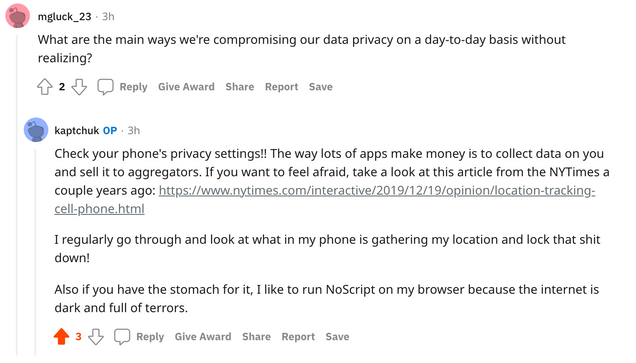
2. Applications should be designed to protect users’ privacy.
Kaptchuk believes that people shouldn’t have to be warned about keeping their information safe. Instead, it is the responsibility of application creators to ensure functionality and protect users’ personal data at the same time. Most websites nowadays have Transport Layer Security (TLS) that encrypts data sent on the Internet, meaning that hackers are unable to see transactions on these websites, including information on passwords, credit card numbers, and personal correspondence.
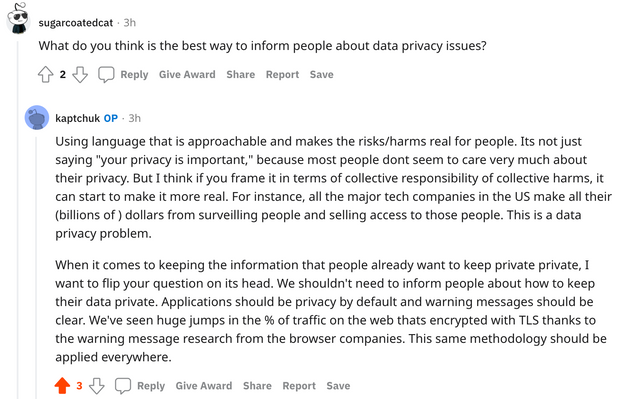
3. GDPR (General Data Protection Regulation) has made progress with helping people understand the importance of data privacy.
The GDPR is a regulation in the European Union on data protection and privacy. Since being put into effect on May 25, 2018, the GDPR guarantees that data protection measures are built into products and services from the earliest stage of development. Organizations are also required to let their customers know when their data has been hacked.

4. The biggest cybersecurity threat is the collection and aggregation of personal information by companies and governments
The large amount of personal data that companies and governments collect from individuals expose them to threats such as ransomware.

5. Computer scientists need to be more socially conscious, while other researchers need to have a working understanding of data privacy.
In higher education, students are either not taught measures to enhance data privacy or they’re not taught the social implications of security breaches.
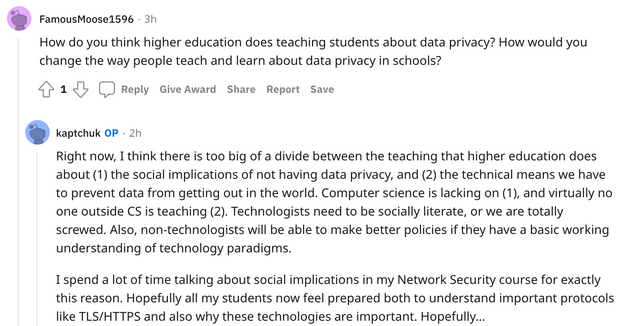
6. People can protect their own data online from being used against their will.
Kaptchuk explains the steps people need to take to secure data privacy, including using applications such as Password Managers, HaveIBeenPwned, and checking the privacy settings on their phones regularly.
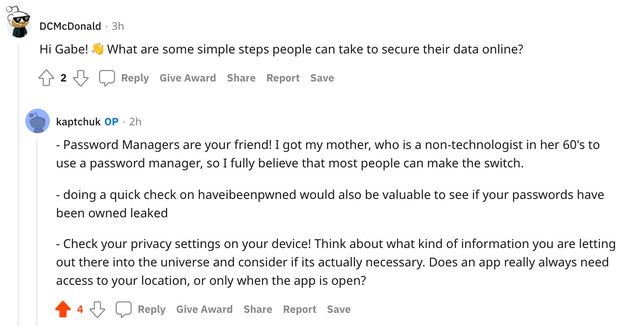
7. Cryptocurrency can provide a sense of security for money transactions across the world
A cryptocurrency is a payment platform that facilitates digital payments without a central bank or clearing house. There are many cryptocurrencies, including Bitcoin and Ethereum, which arguably offer better privacy properties compared to other digital payment platforms, like Visa or MasterCard.

8.There are numerous ways for undergraduate students to get involved in cybersecurity research
Kaptchuk suggests that students start with taking a course, regularly attend office hours to get to know their professor and build relationships with Ph.D. students who are TAs. He added that many research groups will also have guest speakers come in to discuss upcoming research projects so attending those will also be beneficial.

9. Everyone needs data privacy, even if they have nothing to hide
Kaptchuk explains the importance of data privacy, especially when it comes to building a strong and secure system in society so that not only you, but everyone around you, is safe.

10. Privacy and accountability can work together
Cryptography creates a way to keep companies accountable for the well-being of society without compromising organizations’ data privacy.
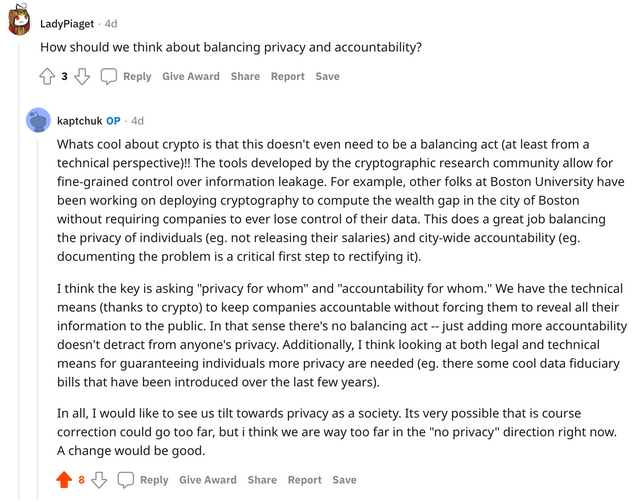
Interested in learning more about the research happening at the Hariri Institute? Sign up for our newsletter here.
